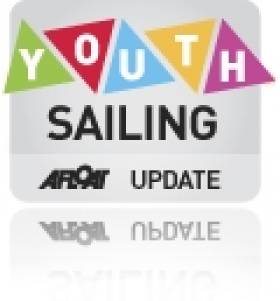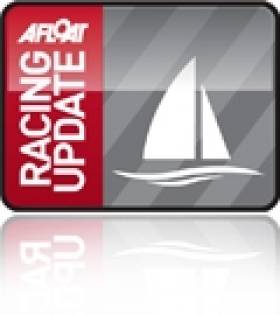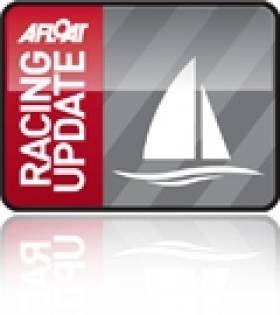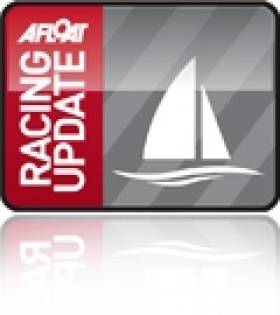Displaying items by tag: youth sailing
Top Five Start for O'Dowd
Fresh from a top ten finish at the ISAF Youth Worlds, Dun Laoghaire sailor Matthew O'Dowd has started the Radial Youth World Championships in Largs with a second place finish.
The Laser fleet numbers some 210 boats, and has been split in three for the initial group stages. O'Dowd's second place in his 70-boat group puts him in fifth overall and sets a good tone for the rest of the regatta.
The Worlds, held in Largs, Scotland, lost its first day to light airs and had to wait until late in the afternoon yesterday to get racing in, whena steady, building northerly breeze trickled down the Clyde this afternoon allowing racing to commence.
The conditions were far from what the senior Radial fleet experienced at their world championship the previous week when gusts of 40kts swept through the fleet, but adequate enough to allow the 320 competitors to enjoy the first tactical race of the series.
Sailing on ‘home waters’, it was good to see 16-year-old GBR sailor Elliot Hanson demonstrating why he is one of the hot favourites here this week. Hanson finished sixth on these same Clyde waters last week at the Laser Radial World Championships. A former Topper UK national and world champion he benefited from the leading Hungarian’s windward mark-rounding error, and enjoyed a good race with Matthew O'Dowd (IRL), to win the one and only race of the day on the Boys’ course. Tadeusz Kubiak (POL) was also on top form winning Blue fleet, while Matthew Mollerus (USA) has made his intentions clear by winning the Red fleet.
On the girls’ course, set further to the north of Cumbrae, the situation was equally exciting with Julia Vallo Arjonilla (ESP) winning the first race in the Blue fleet and finishing third in Race 2 which puts her in a leading overall position. Pauline Barwinska (POL) snatched a win in Yellow fleet when Marketa Audyova (CZE) who crossed the line first, was deemed OCS.
Barwinska, fresh from competing at the Volvo Youth Sailing ISAF World Championship in Turkey is another race sharp sailor who showed she’s a real force to be reckoned with. She’s only been competing at international level for one year, so today’s result has given her a massive boost. The Japanese girls are also on top form with Manami Doi, and Momoko Tada taking wins in the second races (Yellow and Blue fleets).
Elliot Hanson (GBR): “We had quite tricky conditions to start with because the wind was up and down. I was second round the windward mark and then managed to chop and change with Matthew Odowd until the last run when I just managed to pull away. We started off with the most wind of the day at 12kts from the north generally. There were more pressure changes than shifts. The key today was to keep the speed up and reach the first windward mark in a decent position. But I think staying in the highest pressure was the key factor of the day. Some of the other British sailors did well today too and Cam Douglas – who was at the ISAF event, and John Currie who was second at the Youth Trials – are definitely two I’ll be watching out for this week.”
Full results from the event are HERE.
All Quiet at Largs, Penney Drops in Poland
There was no racing for the Laser Radials in Largs, Scotland, yesterday, and with the centre of a weak low sitting over the northern Irish sea today, racing has already been postponed at the venue for today, which means no action for the 15-strong Irish squad attending the event.
Two more races for the sole Irish sailor, Chris Penney, at the Youth Standard Rig Worlds in Gdynia, Poland, however. Penney let slip a 39th-place finish in his group, followed up with a 14th. That means he drops to 42nd overall, still a very respectable position in a 124-boat fleet.
More news on both of these events as we have it.
Tie-Break Denies Irish Sailor Bronze
Irish Laser Radial sailor Rory Lynch missed out on a bronze at Warnemunde Woche on countback yesterday, finishing on equal points with Pole, Tadeusz Kubiak.
The Blessington sailor posted a 5,3,4 scoreline in his final three races, but with Kubiak having posted a win earlier in the week, he got third place on the 'most firsts, most seconds' rule.
Compatriot Philip Doran from Courtown score a win in race five and joined Lynch in the top ten overall, finishing eighth in the 144-boat fleet.
The event will be a good indicator of performance ability going into the World Championships at Largs, Scotland, starting on July 20.
Full results for Warnemunde are HERE.
Two Irish in North Sea Top Ten
Two Irish sailors have moved into the top ten of the North Sea Regatta in the Laser Radial fleet.
Rory Lynch and Ross Harvey both posted top three results in the 79-boat fleet to move into the top ten, with Lynch in fifth overall and Harvey in eighth place.
The event is part of the summerlong Europa Cup laser series.
RESULTS



























































